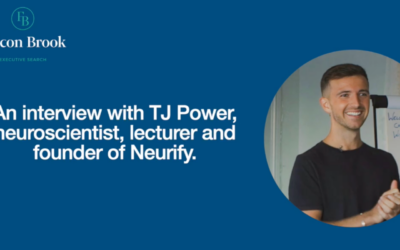“Bonkers” has become the standard description for the current level of market volatility that we are all grappling with. Every day, my contacts share stories of extraordinary trades and unprecedented losses.
I hear of traders “blowing up” books, teams digging deep into drawdown and not seeing a way out, capital evaporating, passionate entrepreneurs running out of steam, established businesses contemplating a sale, people being summarily fired.
Every single trader, originator, commercial director and support team that I speak to, across Europe, Asia PAC and the US, is feeling the heat.
Strangely, these stories create a sense of anxious excitement. Not least in a talent pool that looks to the energy sector as a place of innovation and opportunity.
But this is real life – we’re not watching a disaster movie.
And to what extent are these stories true? How much is sector “myth”?
Of course, these are unprecedented times and there will be winners and losers. It is now inevitable that these markets will change the established landscape. However, it is also becoming clear that some claims have been elaborated, to say the least.
Behind these exaggerations are real people who are navigating a challenging market to the best of their abilities.
In so many conversations I sense the burden that the industry is carrying, even in those many businesses that are thriving and planning for growth.
This is where the narrative around the current trading cycle can have such a negative impact. This
exaggeration can heighten uncertainty in the very talent pool we all so wish to engage. It can also raise a question about the personal costs involved in operating in this highly volatile environment.
This is something we should all be concerned about at a time when the energy sector is central to driving positive change and delivering a more sustainable future.
Businesses are building new teams, expanding with new technologies, redeploying workforce from traditional energy sources, targeting talent from other sectors and creating partnerships that facilitate access to new skills. There is so much potential and so many capable people.
To move forward positively it will be important to curb our desires for exciting, exaggerated stories and focus on the imperative to build an engaged employee base, with the diversity of experience, knowledge and thought to drive innovation and harness opportunity,
While the remuneration, of course, still has to be right and is always a big lure, candidates
are now asking more difficult questions about the culture, leadership and values of the organisations they consider working for. They are watching how organisations treat employees during these times of duress.
And this follows immediately on the heels of the pandemic which had already had a radical effect on candidates expectations about new ways of working.
Through the pandemic we invited colleagues and networks into our homes via video conference. We spoke with pride about a new collaborative workplace where teams are supportive, and competitors can work harmoniously as part of a larger eco system.
Our pets and toddlers came bounding into the background and were introduced to our workplace contacts on our laps. We all smiled into the screen and said how good it made working.
How businesses build culture as they head back into the office again and how they treat people during difficult times will be critical to defining the talent pool they will attract and engage.
We are all operating in this market together both as competitors and also united around many shared goals around decarbonisation, diversity and equality.
I am now seeing so many more people in person, and as this is mental health week, I have given so many people a hug. Everyone has told me how powerful this simple gesture can be – even when we are meeting to have a difficult conversation.
People make mistakes. People need to make tough decisions. We all have a breaking point.
Supporting people through times of struggle and downturn is about so much more than the individual.
We are all human and we need to be aware of the impact that a “bonkers” market can have on the mental health of ourselves and others.
Asking for help if you are struggling, offering to help if you see someone in need, sends a powerful message of a caring compassionate culture.
Look beyond the organisation if you need to talk: reach out to me and I will direct you to a number of trusted people that I work with who can support you.



